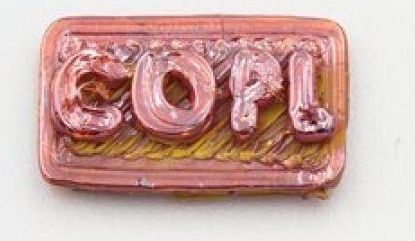For the first time, researchers have successfully 3D printed chalcogenide glass, a unique material used to make optical components that operate at mid-infrared wavelengths. The ability to 3D print this glass could make it possible to manufacture complex glass components and optical fibers for new types of low-cost sensors, telecommunications components and biomedical devices.
In The Optical Society (OSA) journal Optical Materials Express, researchers from the Centre d’Optique, Photonique et Laser (COPL) at Université Laval in Canada, Patrick Larochelle and his colleagues, describe how they modified a commercially available 3D printer for glass extrusion. The new method is based on the commonly used technique of fused deposition modeling, in which a plastic filament is melted and then extruded layer-by-layer to create detailed 3D objects.
“3D printing of optical materials will pave the way for a new era of designing and combining materials to produce the photonic components and fibers of the future,” said Yannick Ledemi, a member of the research team. “This new method could potentially result in a breakthrough for efficient manufacturing of infrared optical components at a low cost.”










Comments are closed.